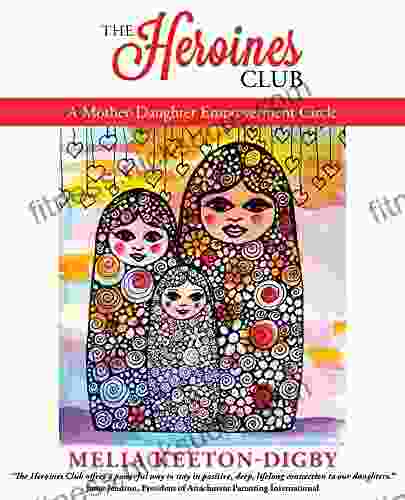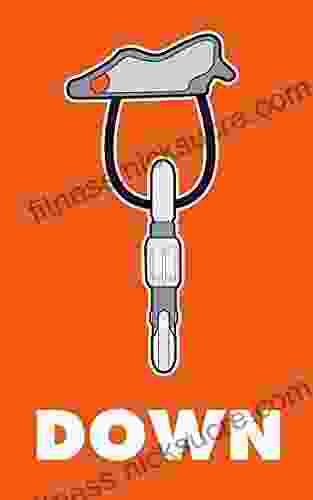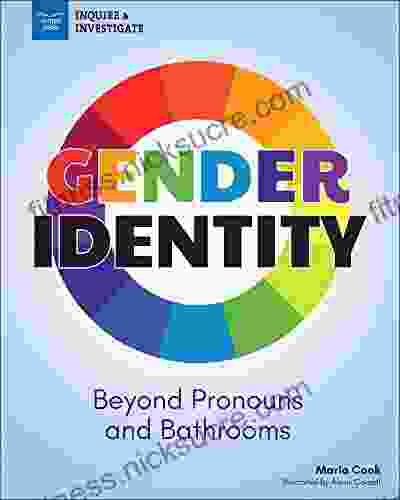Prenatal and Postnatal Care: A Woman-Centered Approach to Optimal Health and Well-being

Prenatal and postnatal care are essential components of a comprehensive healthcare system, encompassing the period before, during, and after pregnancy. These stages play a pivotal role in ensuring the physical, emotional, and psychological well-being of both the mother and the baby. Traditionally, prenatal and postnatal care have been primarily focused on medical interventions and risk management. However, a growing body of evidence suggests that a woman-centered approach, which prioritizes the mother's needs and preferences, leads to better health outcomes for both the mother and the child.
4.8 out of 5
| Language | : | English |
| File size | : | 42738 KB |
| Text-to-Speech | : | Enabled |
| Screen Reader | : | Supported |
| Enhanced typesetting | : | Enabled |
| Print length | : | 746 pages |
| Lending | : | Enabled |
Principles of Woman-Centered Care
A woman-centered approach to prenatal and postnatal care is based on the following principles:
- Respect for Autonomy: The mother is the primary decision-maker regarding her health and the care of her child. Healthcare providers should respect her values, beliefs, and preferences, and provide her with the information and support she needs to make informed decisions.
- Collaboration: Healthcare providers work in partnership with the mother to develop a care plan that meets her individual needs and goals. This may involve consulting with other specialists, such as nutritionists, lactation consultants, or mental health professionals, as needed.
- Holistic Care: Prenatal and postnatal care should address all aspects of the mother's health, including her physical, emotional, and psychological well-being. This includes providing support for breastfeeding, nutrition, exercise, and mental health.
- Empowerment: Healthcare providers help the mother to feel informed, confident, and capable of caring for herself and her child. This includes providing her with education, resources, and support systems.
Benefits of Woman-Centered Care
Research has demonstrated that a woman-centered approach to prenatal and postnatal care has numerous benefits, including:
- Improved Maternal Health: Women who receive woman-centered care are more likely to have healthy pregnancies, shorter labors, and fewer complications. They are also more likely to breastfeed successfully and experience less postpartum depression.
- Improved Infant Health: Babies born to mothers who receive woman-centered care are more likely to be healthy and have a low birth weight. They are also more likely to be breastfed, which has numerous health benefits.
- Increased Patient Satisfaction: Women who receive woman-centered care report higher levels of satisfaction with their care. They feel more respected, involved, and supported by their healthcare providers.
Components of Woman-Centered Prenatal Care
Woman-centered prenatal care typically includes the following components:
- Regular prenatal visits: These visits provide an opportunity for the healthcare provider to monitor the mother's health and the baby's development. They also provide an opportunity for the mother to ask questions and discuss any concerns.
- Education and counseling: The healthcare provider provides the mother with information about pregnancy, childbirth, and parenting. This may include topics such as nutrition, exercise, breastfeeding, and newborn care.
- Prenatal testing and screening: These tests are used to identify potential health risks for the mother and the baby. The healthcare provider will discuss the benefits and risks of each test with the mother before recommending it.
- Prenatal care plan: The healthcare provider works with the mother to develop a prenatal care plan that meets her individual needs and goals. This plan may include recommendations for nutrition, exercise, and other lifestyle factors.
Components of Woman-Centered Postnatal Care
Woman-centered postnatal care typically includes the following components:
- Postpartum checkup: This visit, typically scheduled 6-8 weeks after delivery, allows the healthcare provider to check the mother's physical and emotional health. It also provides an opportunity for the mother to discuss any concerns she may have.
- Breastfeeding support: The healthcare provider provides support and guidance to mothers who are breastfeeding. This may include helping them to latch their baby properly, increase their milk supply, and overcome any challenges.
- Emotional support: The healthcare provider checks in on the mother's emotional well-being and provides support and resources as needed. This may include screening for postpartum depression and anxiety.
- Health education: The healthcare provider provides the mother with information about postpartum recovery, contraception, and other health-related topics.
Resources and Support Systems
There are a number of resources and support systems available to women who are receiving woman-centered prenatal and postnatal care. These include:
- Prenatal and postnatal classes: These classes provide education and support to women during pregnancy and after childbirth. Topics covered may include childbirth preparation, breastfeeding, newborn care, and postpartum recovery.
- Support groups: Support groups provide a safe and supportive environment for women to connect with other women who are going through similar experiences. This can be especially helpful for women who are experiencing postpartum depression or anxiety.
- Lactation consultants: Lactation consultants are healthcare professionals who can provide support and guidance to women who are breastfeeding. They can help with latching, milk production, and other breastfeeding challenges.
- Mental health professionals: Mental health professionals can provide support and treatment for women who are experiencing postpartum depression or anxiety.
A woman-centered approach to prenatal and postnatal care is essential for ensuring the optimal health and well-being of both the mother and the baby. By respecting the mother's autonomy, involving her in decision-making, and providing her with holistic care and support, healthcare providers can help women to have healthy pregnancies, safe deliveries, and successful breastfeeding experiences. Empowering women to make informed choices about their health and the care of their children is not only beneficial for their immediate well-being but also for their long-term health and well-being and that of their families.
4.8 out of 5
| Language | : | English |
| File size | : | 42738 KB |
| Text-to-Speech | : | Enabled |
| Screen Reader | : | Supported |
| Enhanced typesetting | : | Enabled |
| Print length | : | 746 pages |
| Lending | : | Enabled |
Do you want to contribute by writing guest posts on this blog?
Please contact us and send us a resume of previous articles that you have written.
 Fiction
Fiction Non Fiction
Non Fiction Romance
Romance Mystery
Mystery Thriller
Thriller SciFi
SciFi Fantasy
Fantasy Horror
Horror Biography
Biography Selfhelp
Selfhelp Business
Business History
History Classics
Classics Poetry
Poetry Childrens
Childrens Young Adult
Young Adult Educational
Educational Cooking
Cooking Travel
Travel Lifestyle
Lifestyle Spirituality
Spirituality Health
Health Fitness
Fitness Technology
Technology Science
Science Arts
Arts Crafts
Crafts DIY
DIY Gardening
Gardening Petcare
Petcare Joy S Kasson
Joy S Kasson Terry Marsh
Terry Marsh Suzanne Giesemann
Suzanne Giesemann Alice Walker
Alice Walker David A Ebert
David A Ebert David Gessner
David Gessner Lynne Robinson
Lynne Robinson Gary Wayne
Gary Wayne Mary Johnson
Mary Johnson Alfred Tennyson
Alfred Tennyson David R Hawkins
David R Hawkins Karin Slaughter
Karin Slaughter Alice Beck Kehoe
Alice Beck Kehoe Jerry Lynch
Jerry Lynch Nancy Roe Pimm
Nancy Roe Pimm Alexandra Bracken
Alexandra Bracken Dan Jenkins
Dan Jenkins Charles Hainsworth
Charles Hainsworth William King
William King John Pirillo
John Pirillo Paul Stephenson
Paul Stephenson Crystal Waltman
Crystal Waltman Stephen Blyth
Stephen Blyth Melissa Falkowski
Melissa Falkowski Craig S Brantley
Craig S Brantley Alice Horton
Alice Horton Ali Novak
Ali Novak Martha Shirk
Martha Shirk Minda Harts
Minda Harts Scott Chimileski
Scott Chimileski John G West
John G West Executivegrowth Summaries
Executivegrowth Summaries Karin Perry
Karin Perry Alicia Puglionesi
Alicia Puglionesi Erica Lyon
Erica Lyon Said Hasyim
Said Hasyim Arthur Robert Harding
Arthur Robert Harding Randy Spencer
Randy Spencer Stephen Ilg
Stephen Ilg Hape Kerkeling
Hape Kerkeling Malina Malkani Ms Rdn Cdn
Malina Malkani Ms Rdn Cdn Wendy Wood
Wendy Wood Adrian Dingle
Adrian Dingle Peggy Vincent
Peggy Vincent Valora Conciencia En Los Medios
Valora Conciencia En Los Medios Charlie N Holmberg
Charlie N Holmberg Alfred Begum
Alfred Begum Bernie Clark
Bernie Clark Alfred Lambremont Webre
Alfred Lambremont Webre Daniel Young
Daniel Young Mark Elbroch
Mark Elbroch Wade Davis
Wade Davis Romina Garber
Romina Garber Darrin Gee
Darrin Gee Penny Armstrong
Penny Armstrong Nick Mitchell
Nick Mitchell M Mitchell Waldrop
M Mitchell Waldrop Mary Cholmondeley
Mary Cholmondeley Jack Batten
Jack Batten Heidi Murkoff
Heidi Murkoff Alice Gorman
Alice Gorman Sigurd F Olson
Sigurd F Olson Eric Barker
Eric Barker Jonathan Weiner
Jonathan Weiner Carl Erskine
Carl Erskine Erika Rogers Holland
Erika Rogers Holland Brian D Ambrosio
Brian D Ambrosio Jill Simonian
Jill Simonian Robert Lusetich
Robert Lusetich Sarah Bolitho
Sarah Bolitho Michele Filgate
Michele Filgate David J Goldman
David J Goldman Mike Wallace
Mike Wallace Natalie Angier
Natalie Angier Karen Mcquestion
Karen Mcquestion Jason Selk
Jason Selk David G Alciatore
David G Alciatore Alexandra Brodsky
Alexandra Brodsky Patricia A Mckillip
Patricia A Mckillip Alexis Averbuck
Alexis Averbuck Pottermore Publishing
Pottermore Publishing Donna Bozzo
Donna Bozzo Laura Gauld
Laura Gauld John Madieu
John Madieu Eileen Edna Power
Eileen Edna Power Alfred North Whitehead
Alfred North Whitehead Gabriel Aluisy
Gabriel Aluisy Mark Harris
Mark Harris Crysta Mchenry
Crysta Mchenry Alice Steinbach
Alice Steinbach Sammy Hagar
Sammy Hagar Rev Cain
Rev Cain Anna Mathur
Anna Mathur Paul Wilmott
Paul Wilmott Jeff Cooper
Jeff Cooper Brent Warner
Brent Warner Brigid Moss
Brigid Moss Arthur Ashe
Arthur Ashe Bjorn Kjellstrom
Bjorn Kjellstrom Clay Bonnyman Evans
Clay Bonnyman Evans Joseph Henrich
Joseph Henrich Ian Morris
Ian Morris Sarah Melland
Sarah Melland Raymond Barrett
Raymond Barrett Matilda Betham
Matilda Betham Joeanna Rebello Fernandes
Joeanna Rebello Fernandes David Travis
David Travis Stephanie Mitchell Cnm Msn Dnp
Stephanie Mitchell Cnm Msn Dnp Frank White
Frank White Jessica Riskin
Jessica Riskin Sarah Rayner
Sarah Rayner Doc Norton
Doc Norton Frederick Courteney Selous
Frederick Courteney Selous Milly Buonanno
Milly Buonanno Alexis C Bunten
Alexis C Bunten Joe Dolio
Joe Dolio George Takei
George Takei Jayson Georges
Jayson Georges Alexandra Fuller
Alexandra Fuller Hollie Henderson
Hollie Henderson Paige Wolf
Paige Wolf Kathleen Mcauliffe
Kathleen Mcauliffe Tracy Becker
Tracy Becker Grackle Pigeon
Grackle Pigeon Martha Sears
Martha Sears Shaun David Hutchinson
Shaun David Hutchinson Lydia Wylie Kellermann
Lydia Wylie Kellermann Robert A Monroe
Robert A Monroe Thomas Hill
Thomas Hill Richard H Coop
Richard H Coop David J Rothman
David J Rothman Robert P Crease
Robert P Crease Paul Asay
Paul Asay Alexey Zimarev
Alexey Zimarev Sabina Khan
Sabina Khan Daniel M Davis
Daniel M Davis Tom Mackie
Tom Mackie Carmindy
Carmindy Rin Chupeco
Rin Chupeco Jim Walden
Jim Walden Thomas Hund
Thomas Hund Louis Borgenicht
Louis Borgenicht Michael J Behe
Michael J Behe Jessica Long
Jessica Long Complete Test Preparation Inc
Complete Test Preparation Inc Gary A Klein
Gary A Klein Kathryn A Bard
Kathryn A Bard Roy Barth
Roy Barth Eric Mantle
Eric Mantle Kenn Bivins
Kenn Bivins David Armitage
David Armitage Karin Bojs
Karin Bojs Lauren Harris
Lauren Harris America S Test Kitchen
America S Test Kitchen Elan Golomb
Elan Golomb John Pagano
John Pagano Kynan Bridges
Kynan Bridges Theodore Roosevelt
Theodore Roosevelt Jose Albani
Jose Albani Mark Kaplan
Mark Kaplan Ben Applebaum
Ben Applebaum Kimberly V Garner
Kimberly V Garner Neil J Salkind
Neil J Salkind Melia Keeton Digby
Melia Keeton Digby Jane Gildart
Jane Gildart John Lohn
John Lohn Alexei Yurchak
Alexei Yurchak Karen Kovacs
Karen Kovacs Thao Doan
Thao Doan Eric Kaplan
Eric Kaplan Peter Woit
Peter Woit Richard Preston
Richard Preston Ali Almossawi
Ali Almossawi Roland Huntford
Roland Huntford Amy Pickar Abernethy
Amy Pickar Abernethy Malala Yousafzai
Malala Yousafzai Sharon Powell
Sharon Powell Pam Withers
Pam Withers Jen Noonan
Jen Noonan Alexandra Kennon
Alexandra Kennon Alice Borchardt
Alice Borchardt Kathy Barker
Kathy Barker Lonely Planet
Lonely Planet Ryan Guldberg
Ryan Guldberg Jermaine Harris
Jermaine Harris John F Gilbey
John F Gilbey Jean Chatzky
Jean Chatzky Patti M Hummel
Patti M Hummel Tracy Anderson
Tracy Anderson Emma Lock
Emma Lock Rob Price
Rob Price Bassem R Mahafza
Bassem R Mahafza Glade B Curtis
Glade B Curtis Alice Miller
Alice Miller Ali Katz
Ali Katz Daniel Foor Phd
Daniel Foor Phd Lyanda Lynn Haupt
Lyanda Lynn Haupt Jessica Goodman
Jessica Goodman Douglas Starr
Douglas Starr Alexandra Robbins
Alexandra Robbins Alice Cooper
Alice Cooper Peter J Hotez
Peter J Hotez Ashley Mardell
Ashley Mardell Shaka Senghor
Shaka Senghor Ryuu Shinohara
Ryuu Shinohara Joel Weinberger
Joel Weinberger Emily Levesque
Emily Levesque Tim Maudlin
Tim Maudlin Matthew Bowling
Matthew Bowling Yvette Marquez Sharpnack
Yvette Marquez Sharpnack Stacy Tornio
Stacy Tornio Judith Levin
Judith Levin Patrick Torsell
Patrick Torsell Michael Mcteigue
Michael Mcteigue Lance Akiyama
Lance Akiyama Duncan Hines
Duncan Hines Alice Roberts
Alice Roberts Alina Adams
Alina Adams Heinrich Cornelius Agrippa Von Nettesheim
Heinrich Cornelius Agrippa Von Nettesheim Lauren Drain
Lauren Drain Mary Kay Andrews
Mary Kay Andrews Erez Morabia
Erez Morabia Robert L Kelly
Robert L Kelly Alexandria Moran
Alexandria Moran Kathy Gunst
Kathy Gunst Sir E A Wallis Budge
Sir E A Wallis Budge Luke Reynolds
Luke Reynolds Alice Scordato
Alice Scordato Helen Purperhart
Helen Purperhart Dylan Farrow
Dylan Farrow Joshua R Eyler
Joshua R Eyler Tasha Alexander
Tasha Alexander Tim Weston
Tim Weston Michael Cave
Michael Cave Alfie Kohn
Alfie Kohn Alexis Marie Chute
Alexis Marie Chute Udo Schaefer
Udo Schaefer Michael Thorp
Michael Thorp Peter Flom
Peter Flom Damon Centola
Damon Centola Margaret Starbird
Margaret Starbird Beccy Hands
Beccy Hands Chip K
Chip K Dan Aadland
Dan Aadland Seabury Blair
Seabury Blair Eric Layton
Eric Layton Jay Greenberg
Jay Greenberg Norman L Keltner
Norman L Keltner Michael Clark
Michael Clark Charles Murray
Charles Murray Sacha Black
Sacha Black Stephen Altschuler
Stephen Altschuler Sarah K L Wilson
Sarah K L Wilson Neil Schulenburg
Neil Schulenburg Ted Zeff
Ted Zeff Vicki Manning
Vicki Manning Kirstin Cronn Mills
Kirstin Cronn Mills Alice Boyes Ph D
Alice Boyes Ph D Mike Dauplaise
Mike Dauplaise Nora Roberts
Nora Roberts Karl Wiegers
Karl Wiegers Matthew Dektas
Matthew Dektas Becca Maberly
Becca Maberly Les Adams
Les Adams Nick Littlehales
Nick Littlehales Rachel Vitale
Rachel Vitale Whitney Ferre
Whitney Ferre Zar Petkov
Zar Petkov Peter Stark
Peter Stark Devyn Stone
Devyn Stone Carlton Kirby
Carlton Kirby David A Askay
David A Askay Laura Katz
Laura Katz Sir Oliver Lodge
Sir Oliver Lodge German Raigosa
German Raigosa Kevin Allen
Kevin Allen Constantine A Balanis
Constantine A Balanis Courtney Kenney
Courtney Kenney John Abramson
John Abramson Frank Amthor
Frank Amthor Vishal Sambharya
Vishal Sambharya Hicham And Mohamed Ibnalkadi
Hicham And Mohamed Ibnalkadi Katie Walsh Flanagan
Katie Walsh Flanagan Joshua Coleman Phd
Joshua Coleman Phd Jeremy Hance
Jeremy Hance Steve O Hearn
Steve O Hearn Alexandra Mayzler
Alexandra Mayzler Anymom
Anymom Ali Wong
Ali Wong Penny Warner
Penny Warner Diana Hudson
Diana Hudson Leslie Berlin
Leslie Berlin Lawrence Weschler
Lawrence Weschler Nancy Carpentier Brown
Nancy Carpentier Brown Steve Parker
Steve Parker Andrew Yueh
Andrew Yueh Jim Mclean
Jim Mclean Deborah Laird Meeks
Deborah Laird Meeks Alfred Tarski
Alfred Tarski Keisuke Andrew
Keisuke Andrew Michael Patrick Ghiglieri
Michael Patrick Ghiglieri Frank J Tipler
Frank J Tipler Jeremy Benson
Jeremy Benson Bayo Akomolafe
Bayo Akomolafe Ali Velez Alderfer
Ali Velez Alderfer Dean Pohlman
Dean Pohlman Karyl Rickard
Karyl Rickard Alice Nobile
Alice Nobile Michael Vassallo
Michael Vassallo Kev Reynolds
Kev Reynolds Ally Nathaniel
Ally Nathaniel Susan Jules
Susan Jules Jay Golden
Jay Golden Stacey L Bradford
Stacey L Bradford Michael Johnson
Michael Johnson Oivind Andersson
Oivind Andersson Lynne Cox
Lynne Cox G Pascal Zachary
G Pascal Zachary Michael Vlessides
Michael Vlessides Alfred Edersheim
Alfred Edersheim David Byrne
David Byrne Andy Kirkpatrick
Andy Kirkpatrick Guy Hunter Watts
Guy Hunter Watts Samantha Cattach
Samantha Cattach Nick Kalyn
Nick Kalyn Carol Chaitkin
Carol Chaitkin Michaelbrent Collings
Michaelbrent Collings Alice Jolly
Alice Jolly Stuart Kauffman
Stuart Kauffman Roddy Scheer
Roddy Scheer Gordon England
Gordon England Peter Collier
Peter Collier Aram Attarian
Aram Attarian Hank D Haney
Hank D Haney Larry Baush
Larry Baush Hans Rosling
Hans Rosling Rosary O Neill
Rosary O Neill Mark C Purcell
Mark C Purcell Carmen Martinez Jover
Carmen Martinez Jover Mary Beth Knight
Mary Beth Knight Alexis L Boylan
Alexis L Boylan Michael R Lindeburg
Michael R Lindeburg Sue Tidwell
Sue Tidwell Krissy Moehl
Krissy Moehl Eleanor Drago Severson
Eleanor Drago Severson Thomas Horn
Thomas Horn Frank C Hawkins
Frank C Hawkins Henry Gilbert
Henry Gilbert Virgil Herring
Virgil Herring Nel Noddings
Nel Noddings Sarah A Chrisman
Sarah A Chrisman Pantea Kalhor
Pantea Kalhor Shannon Messenger
Shannon Messenger Robert Kagan
Robert Kagan Deborah Layton
Deborah Layton Penelope Leach
Penelope Leach Mitchell P Jones
Mitchell P Jones Ron Ritchhart
Ron Ritchhart Mike Commito
Mike Commito C S Johnson
C S Johnson Christopher Mitchell
Christopher Mitchell Normandi Ellis
Normandi Ellis Alexandra Heminsley
Alexandra Heminsley Adah Bakalinsky
Adah Bakalinsky Jodi L Weinstein
Jodi L Weinstein Mark Rippetoe
Mark Rippetoe Carol Ekarius
Carol Ekarius Philip Rossoni
Philip Rossoni Matthew Cowsert
Matthew Cowsert George Beinhorn
George Beinhorn Robert Zimmerman
Robert Zimmerman Helen Hodgson
Helen Hodgson Bear Grylls
Bear Grylls Lisa Manterfield
Lisa Manterfield Heather Lang
Heather Lang Jon Moxley
Jon Moxley Chase Kosterlitz
Chase Kosterlitz Alexey Osadchuk
Alexey Osadchuk Arno Ilgner
Arno Ilgner Robin G Jordan
Robin G Jordan Daniel Goleman
Daniel Goleman Andrew Zimmern
Andrew Zimmern Tim R Swartz
Tim R Swartz Suzy Amis Cameron
Suzy Amis Cameron Mark Zondo
Mark Zondo William G Tapply
William G Tapply Lara Alcock
Lara Alcock Aris Spanos
Aris Spanos Mario Cleves
Mario Cleves Rails To Trails Conservancy
Rails To Trails Conservancy Michelle Rotteau
Michelle Rotteau Lindsay Grace
Lindsay Grace Jenna Ortega
Jenna Ortega Heather Baker
Heather Baker Alexandra M Levitt
Alexandra M Levitt John C Hudson
John C Hudson Steven Pressfield
Steven Pressfield Anthony Legins
Anthony Legins Alice June
Alice June Carolyn Highland
Carolyn Highland Dagny Scott Barrios
Dagny Scott Barrios Alexia Leachman
Alexia Leachman John Bemelmans Marciano
John Bemelmans Marciano Peter D Rogers
Peter D Rogers Elizabeth Clare Prophet
Elizabeth Clare Prophet Mikel Jollett
Mikel Jollett Christopher Steiner
Christopher Steiner David Wolman
David Wolman Dr C
Dr C Mark Sisson
Mark Sisson David Watson
David Watson Robert Scott
Robert Scott Ernie Palladino
Ernie Palladino Yehuda Lindell
Yehuda Lindell Judy Murray
Judy Murray Reina Donovan
Reina Donovan Jim Vance
Jim Vance Dustin Vaughn Warncke
Dustin Vaughn Warncke Scott Weems
Scott Weems Robin Kaplan M Ed Ibclc
Robin Kaplan M Ed Ibclc Nic Sheff
Nic Sheff Corky Pollan
Corky Pollan Whitney Miller
Whitney Miller Dr Heather L Johnson
Dr Heather L Johnson Joe Proulx
Joe Proulx Lara Carter
Lara Carter Richard Moore
Richard Moore Phillip Starr
Phillip Starr Lola Glass
Lola Glass Paul H Frampton
Paul H Frampton Bob Toski
Bob Toski Ellen Kane
Ellen Kane Scott Linden
Scott Linden Alice Sebold
Alice Sebold Philip Freeman
Philip Freeman Eric Siegel
Eric Siegel Thomas F King
Thomas F King David Maidment
David Maidment Peter Gandy
Peter Gandy Anders Morley
Anders Morley Matthew Silverman
Matthew Silverman Allison Saft
Allison Saft Wendy Currie
Wendy Currie Susan Albers
Susan Albers Arthur Lydiard
Arthur Lydiard K T Hanna
K T Hanna Howard Pyle
Howard Pyle Amanda Ripley
Amanda Ripley Leslie Anthony
Leslie Anthony Patrick Ness
Patrick Ness Dawn Brookes
Dawn Brookes Paul Green
Paul Green Ken Mink
Ken Mink Alice Kuipers
Alice Kuipers Jonny Bowden
Jonny Bowden George S Fichter
George S Fichter Rebecca Schwarzlose
Rebecca Schwarzlose Jonathan Carroll
Jonathan Carroll Gen Tanabe
Gen Tanabe Alicia Ranoldo
Alicia Ranoldo Li Ming Lee
Li Ming Lee Veronica O Keane
Veronica O Keane Josh Peter
Josh Peter Ruby Vincent
Ruby Vincent Susan Wise Bauer
Susan Wise Bauer Wayne Stewart
Wayne Stewart David G Kingdon
David G Kingdon Emily Riehl
Emily Riehl Avi Gordon
Avi Gordon Sam Thoma
Sam Thoma Dianna L Van Blerkom
Dianna L Van Blerkom Penelope Freed
Penelope Freed Zac Unger
Zac Unger Mike Westin
Mike Westin Alexia Purdy
Alexia Purdy Jeff Sambur
Jeff Sambur
Light bulbAdvertise smarter! Our strategic ad space ensures maximum exposure. Reserve your spot today!

 Banana YoshimotoEmbark on an Unforgettable Odyssey: 100 Captivating Hut Walks in the Alps
Banana YoshimotoEmbark on an Unforgettable Odyssey: 100 Captivating Hut Walks in the Alps Kendall WardFollow ·15.3k
Kendall WardFollow ·15.3k Jerome PowellFollow ·18.8k
Jerome PowellFollow ·18.8k Michael ChabonFollow ·9.8k
Michael ChabonFollow ·9.8k Langston HughesFollow ·14.5k
Langston HughesFollow ·14.5k Jamie BellFollow ·13.6k
Jamie BellFollow ·13.6k Chadwick PowellFollow ·7.8k
Chadwick PowellFollow ·7.8k Walter SimmonsFollow ·12.5k
Walter SimmonsFollow ·12.5k Juan ButlerFollow ·8.5k
Juan ButlerFollow ·8.5k

 Derek Bell
Derek BellReflections For Your Heart and Soul: A Journey of...
In the depths of...

 Joseph Conrad
Joseph ConradThe Heroines Club: Empowering Mothers and Daughters
The Heroines Club...

 Milan Kundera
Milan KunderaThe First Kormak Omnibus: A Literary Expedition into the...
Prepare to embark on an extraordinary literary...

 W.H. Auden
W.H. AudenThe Color Purple: A Journey of Love, Resilience, and...
The Color Purple, a groundbreaking novel...

 Harvey Hughes
Harvey HughesTemporal Anomalies and Replacement Theory: Unraveling the...
: The Enigma of Time Time,...
4.8 out of 5
| Language | : | English |
| File size | : | 42738 KB |
| Text-to-Speech | : | Enabled |
| Screen Reader | : | Supported |
| Enhanced typesetting | : | Enabled |
| Print length | : | 746 pages |
| Lending | : | Enabled |












